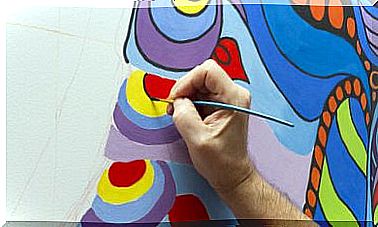4 Keys To Develop Empathy

Empathy allows us to develop as social beings, in fact it helps us to understand and communicate with others. It is that capacity that teaches us that there are more perspectives than ours and that each person observes the world according to everything that happened in their history. In this way, it helps us to establish solid bonds and in some way makes us more cautious when judging others. For all these reasons, it is of great importance to develop empathy.
Thanks to it, it will be easier for us to identify how others feel, as well as to express what our feelings are. Empathy is an art, a capacity that allows us to tune in with others and strengthen our ties with them. Let’s go deeper.

To sympathize is not to empathize
From the outset, it is important to differentiate sympathy from empathy, especially from the more psychological conception of both terms. According to the Dictionary of the Spanish Language, sympathy is “the affective inclination between people, generally spontaneous and mutual”, while empathy is “the feeling of identification with something or someone”.
This difference is certainly relevant, since it is normal for us to think that we are empathizing with someone when, in reality, we are not. Being kind and loving to others does not make us empathic; To achieve this, it is important to go further, you have to try to understand the other person from their perspective and not from ours.
Improve empathy to resolve conflicts
Thanks to the emotional and cognitive connection that this ability allows, empathy can help us solve problems peacefully. By understanding others, it will be easier not to get carried away by our impulses.
To develop empathy we can do some exercises. They are simple to carry out and can significantly help us to improve our relationship with the environment.
How to develop empathy?
First of all, it is important to understand that our progress and personal development can depend closely on our emotional intelligence. Therefore, before trying to put these exercises into practice, we should try to understand the importance of developing this type of intelligence.
Later, we could begin to put into practice the exercises described below.
1. Train the ability to listen
To understand the people we interact with, it is very important to know how to listen; but listening does not mean understanding the other’s words. To truly listen, we should pay full attention to the non-literal message and non-verbal communication.
In order to improve this listening skill, it is also very important to:
- Do not interrupt.
- Not constantly giving our opinion.
- Listen to the message without judgment.
- Pay attention to non-verbal communication.
This last point is the most important, since it gives us relatively easy clues to observe about what that person really feels.
For this reason, it is important to try to understand the emotional system of a person, through the interpretation of their communicative patterns not strictly verbal, in order to be able to be successful in our empathic practice. Therefore, how something is said is often more important than the content of the message itself.
2. Keep calm and opt for quiet
Learning to remain calm will help us to improve our empathy, since without tranquility the ability to listen can be reduced. If we want to improve our ability to listen, it is important to start from a relaxed state of mind and open to different communication possibilities.
In that sense, practices such as breath control or meditation can greatly benefit us.

3. Bet on patience
In relation to the previous point, patience is also closely linked to empathy. To understand the cognitive and emotional processes around us, we need time and we need to spend that time patiently.
4. Ask about emotions and not about data
This point is essential if we want to be successful in developing empathy. As we have already seen, empathy can, at times, have little to do with the literal message in a conversation; on the contrary, it tends to be more related to emotions.
Therefore, the more we care about the emotions of others, the more empathetic we can be. For example, when faced with information such as “yesterday I was promoted at work”, a person with little empathy or disinterest may ask something like “And what will you do now? Will you work the same hours?
However, a more empathetic person may respond something like, “And how did you feel? I imagine that wonderfully. Would you like to celebrate it? That is, it would show greater concern for what the person feels than for the practicalities of the matter.
After all, communication is not based exclusively on the exchange of words; in fact, communication in words represents a low percentage of what we actually communicate. Much less, although it may not seem like it, than emotional communication.








